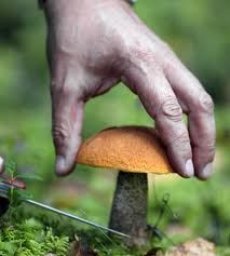New publications
How to realize you have mushroom poisoning
Last reviewed: 01.07.2025

All iLive content is medically reviewed or fact checked to ensure as much factual accuracy as possible.
We have strict sourcing guidelines and only link to reputable media sites, academic research institutions and, whenever possible, medically peer reviewed studies. Note that the numbers in parentheses ([1], [2], etc.) are clickable links to these studies.
If you feel that any of our content is inaccurate, out-of-date, or otherwise questionable, please select it and press Ctrl + Enter.

Mushroom poisoning is a common occurrence, especially in spring and autumn, during the height of the "quiet hunt". To avoid trouble, you need to know the signs of poisoning and be able to provide first aid to the victim.
If after eating mushrooms you experience symptoms such as dizziness, lethargy, shortness of breath, severe abdominal pain, vomiting or headache, call an ambulance immediately. Do not wait, hoping that your health will improve on its own. Intoxication increases very quickly, so do not drive yourself to get to the nearest hospital. If you cannot call an ambulance, ask a friend to take you to a medical facility.
Before the doctor arrives, the victim needs to have his stomach washed out. It is best to do this with water or a weak solution of potassium permanganate (manganese), artificially inducing vomiting. Then the patient should be put to bed and given cold salted water to drink in small sips (one teaspoon of salt per glass of water) - this will help to avoid dehydration. No medications should be taken without a doctor's recommendation. Any alcoholic beverages should be excluded, as alcohol helps the mushroom poisons to be quickly absorbed.
Do not throw away the remains of the mushroom dish that caused the poisoning. They will be useful to the doctor for examination, the most accurate diagnosis and correct subsequent treatment.
Acute poisoning is caused by poisonous or conditionally edible mushrooms. The most common poisonous mushrooms are the death cap, fly agaric and false honey fungus. Death cap poisoning is especially severe, with a large number of victims dying. To avoid becoming a victim of mushroom poisoning, you should only collect and eat those mushrooms that you are absolutely sure of.
However, there are known cases of poisoning from perfectly edible mushrooms. This can happen for several reasons: if they are old or have accumulated a large amount of toxic substances during growth or storage. Experienced mushroom pickers never pick mushrooms that are too large or those that grow along highways, near landfills or near fields (there is a possibility of pesticide treatment).
Despite their attractiveness and good taste, children, pregnant and nursing mothers, the elderly and anyone with digestive tract problems and chronic kidney disease should refrain from eating mushrooms. Gourmets who cannot imagine their menu without mushrooms should replace the forest harvest with safe store-bought champignons and oyster mushrooms to avoid poisoning.
